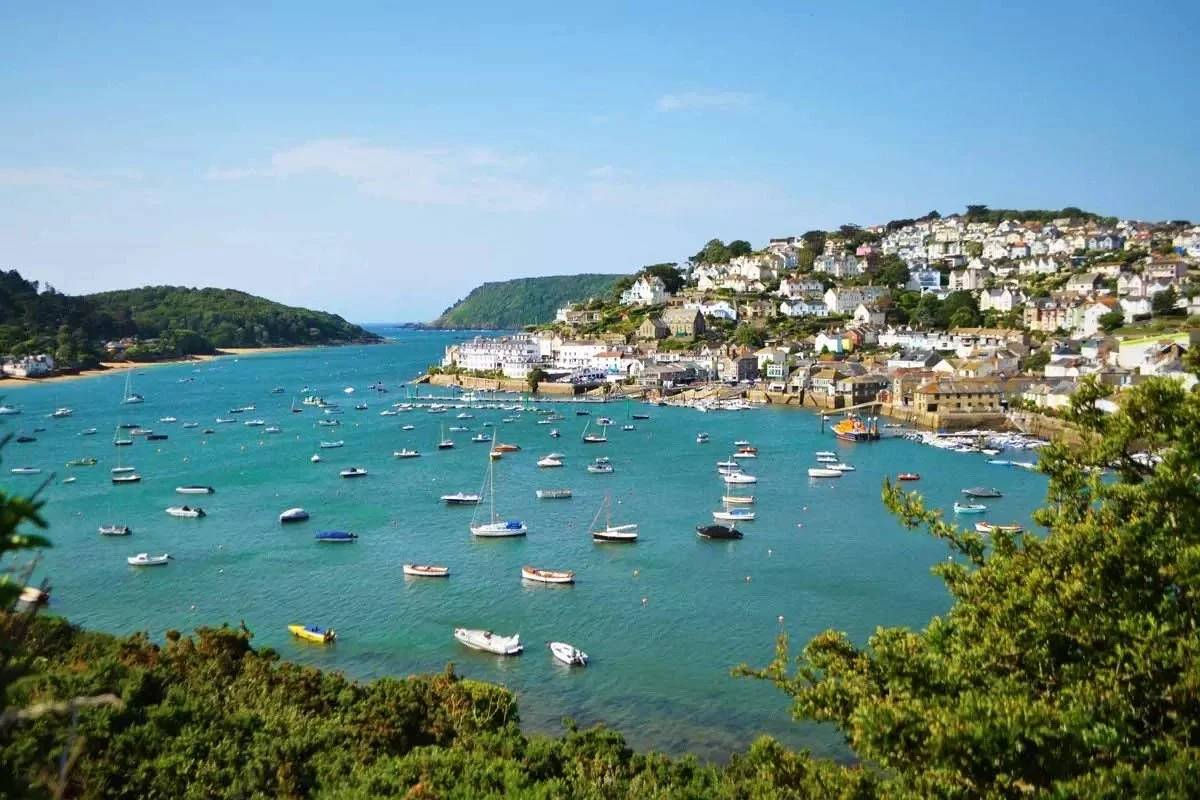The South West Passage
Salcombe, Devon
Looking out over the Salcombe estuary and harbour, where the town meets the water. Boats line the shore, the tide moves gently through the channel
The further west you go, the older England feels.
Roads narrow into high-hedged lanes, the air sharpens with salt, and the land falls away into sea. This is a journey shaped by the coastline, through fishing villages, working harbours, headlands, and hilltop farms. Devon and Cornwall feel like the end of something and that’s exactly their charm.
You move slowly, by necessity. The roads aren’t wide, and they’re not meant to be. They wind between stone walls, along cliff edges, through villages where everything leans with age. Travellers have been coming here for centuries. Artists, poets, those in search of distance and perspective. You follow in their path, not to escape, but to experience something more grounded.
Villages like Clovelly, Mousehole, and Polperro feel unchanged by time. Fishing boats rock in small harbours. Nets hang to dry beside old white cottages. Locals still sell crab from doorsteps. It’s not for show, it’s just how things are done. You walk the narrow lanes, stop for coffee in a converted boathouse, watch the tide pull out across wet sand and leave the harbour silent.
St Ives is a place that catches the light differently. Painters have known that for years. Its galleries spill out onto the streets, and the town hums with quiet confidence. Cobbled paths lead to hidden bookshops and wine bars cut into old fisherman’s stores. Above it all, the coastal path traces the cliffs - wide views, seabirds, wind that makes you stop and look, whether you meant to or not.
The walking here is some of the best in Britain. The South West Coast Path hugs the edges of the land, offering views that feel earned. You pass sea caves, arches, headlands where seals bob in the surf. Sometimes the trail cuts inland for a moment, and you find yourself in a shaded lane with wild garlic underfoot and the sound of the sea just out of reach.
You stay in old inns where the floorboards creak and the beds are deep. Converted barns on windswept hills. Beach houses tucked behind dunes. In some places, the bathroom window opens straight onto the water. You dine on fish that was landed that morning. Scallops, mackerel, lobster. Nothing complicated, just fresh and right. You drink by the fire, and the conversation comes easily.
This part of the country isn’t polished, and that’s what makes it special. It’s lived-in, shaped by weather and tide, held together by routine and pride. The people are open, and the stories are honest. You don’t pass through unnoticed here but you are welcome.
The car becomes your link between it all. The freedom to follow your instincts. A sports car along the coast, something taller and steady for the lanes. You stop when it feels right. Sometimes for the view, sometimes for a bakery, sometimes for nothing at all.
In the South West, time stretches out. You follow the shape of the land, and slowly, you let go of the rest.
